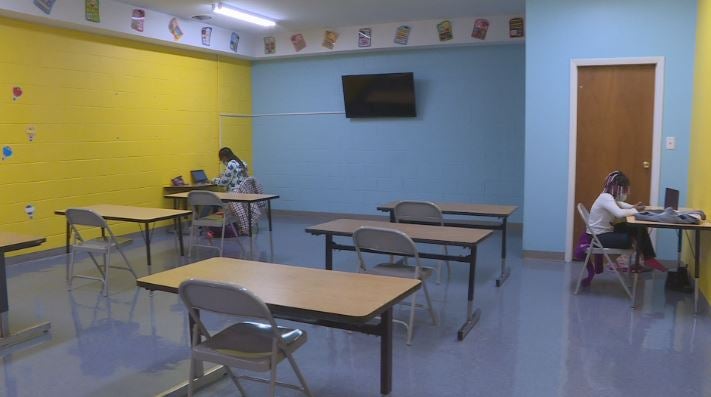Study highlights lost learning opportunities for young children due to pandemic
INDIANAPOLIS (WISH) – A study released Wednesday morning suggests young children have lost important learning opportunities because of the pandemic.
According to the National Institute for Early Education Research at Rutgers, the pandemic has caused nearly a quarter drop in preschool enrollment numbers.

Pre-pandemic, 51% of 3 year-olds and 71% of 4 year-olds we’re enrolled in preschool. Understandably, the numbers dropped drastically in the spring of 2020, however, in the fall only 32% of 3-year-olds and 40% of 4-year-olds were back in the classroom. Enrollment is higher if you include remote learning, however, the study said the numbers mean far fewer kids are getting essential early education.
The study revealed seven major impacts from the pandemic on preschoolers’ learning and on their
parents:
- Participation in center-based preschool programs remained substantially below pre-pandemic levels and much of what did occur was not in-person.
- Support for young children with disabilities appears to have suffered.
- Many more young children had high levels of social and emotional difficulties than
expected. - Preschool programs continue to struggle with assuring all young children eligible for
either free or reduced-price meals get them. - Parents had considerable difficulty with their children’s preschool programs—
particularly if their children were attending remotely. - Among the hardships parents reported from the pandemic, the most common was
getting less work done due to child care and education issues. - Fewer parents reported reading to their children and teaching their children pre-academic skills.
“Parents were just afraid to send their kids during coronavirus and then they just got into a routine or they didn’t have their jobs and didn’t have the money to send them,” said Pam Leeper.
Leeper is the e-learning program coordinator at the Freedom Center in Indianapolis. Previously the program had 40 preschoolers, however, so few returned in the fall, that they’re now an e-learning center. Leeper has noticed the pandemic impact and said some kids coming into first grade are behind on knowing the alphabet and numbers.

“A little regression. You know, in both the social skills and the academic skills. It is just really tough for parents to try to pay attention to their kids and help them with their school. There are some areas, where they are able to do that. A lot of families, however, with both parents working or working different shifts, they just don’t have the time. And if they have multiple kids, it is just hard to give them that attention they need. So we had to kind of re-go over things that initially they had down,” said Leeper.
The study also found that children with family incomes under $25,000, had less than a third of the access to in-person education, compared to their higher income peers.
Leeper is hopeful that children losing out on education now, will eventually be able to catch up.
“The young kids, they feel they can catch up. But it is going to be up to us adults, up to the teachers to find a way how,” said Leeper.